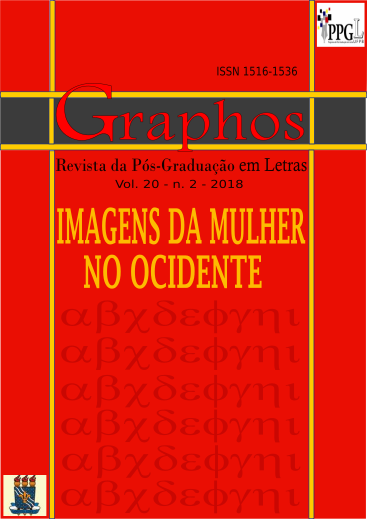Feminine identities and stereotypes in “Mosotras que nos queremos tanto”, by Marcela Serrano
Keywords:
Serrano, Romance, Chile, Resistance, FeministAbstract
The contemporary Chilean writer Marcela Serrano has a vast work that presents as a common point the fact of presenting women protagonists from feminist discourses. Considering the importance of her work in the Latin American context, in this article, we propose to carry out, in the light of the Feminist Criticism and Cultural Studies, a reading of the narrative “Nosotras que nos queremos tanto”, trying to examine how this work is constituted in form of resistance to gender inequality in our continent. In order to do so, we seek to verify how the representation of women and gender relations is manifested in the narrative of the writer, highlighting how, in these spaces, discourses are used to resist a patriarchal and sexist culture that justifies and perpetuates intolerant practices in relation to women. The methodology used consists of analytic-discursive reading of the narrative, which requires a revision of the theory of Cultural Studies and Feminist Criticism. In the work, the author presents four female characters, Ana, Sara, Isabel and Maria, who are characterized by identities and stereotypes linked to the feminine universe, deconstructing sexist and stereotyped discourses in relation to women, which for many centuries were present in traditional literary discourses. Thus, we can affirm that the narrative is constituted from feminist and resistance discourses to the androcentric model that has been in force for centuries in our society, extending to the literary field, responsible for violence and oppression against women.
Downloads
References
BADINTER, Elizabeth. Um amor conquistado: o mito do amor materno. Rio de Janeiro: Nova Fronteira, 1985.
BAUMAN, Zigmunt. Identidade. Entrevista a Benedito Vecchi. Trad. Bras. Carlos Alberto Medeiros. Rio de Janeiro: Jorge Editor, 2008.
CHIMAMANDA, Adichie Ngozi. Sejamos todos feministas. São Paulo: Companhia das Letras, 2015.
HALL, Stuart. A identidade cultural na pós-modernidade. Trad. Tomaz T. da Silva e Guacira L. Louro. Rio de Janeiro: DP&A, 2006.
LE GOFF, Jacques. História e memória. Campinas: Editora da Unicamp, 1994.
LOBO, Luiza. A literatura de autoria feminina na América Latina. In.: Revista Brasil de Literatura. Rio de Janeiro, Ano I, jul.-set. 1997.
MATTELART, Armand; NEVEU, Érik. Introdução aos estudos culturais. São Paulo: Parábola, 2004.
MOI, Toril. (Org.). Sexual/textual politics: feminist literary theory. New York: Routledge, 1988, P.117-132.
MOREIRA, Herivelto, CALEFFE, Luiz Gonzaga. Metodologia da pesquisa para o professor pesquisador. Rio de Janeiro: Lamparina, 2008.
SERRANO, Marcela. Escritoras.com: Literatura escrita por mujeres. Disponível em: http://escritoras.com/escritoras/Marcela-Serrano Acesso em: 20 abr. 2016.
______. Biografías y vidas. La enciclopédia biográfica en línea. Disponível em: http://www.biografiasyvidas.com/biografia/s/serrano_marcela.html Acesso em: 21 abr. 2016.
______. Nosotras que nos queremos tanto. Santiago de Chile: Los Andes, 1991.
______. Nós que nos amávamos tanto. Tradução Luis Carlos Cabral. Rio de Janeiro: Record, 2011.
VEYNE, Paul. Foucault, seu pensamento, sua pessoa. Tradução Marcelo Jacques de Morais. Rio de Janeiro: Civilização Brasileira, 2011.
WOOLF, Virginia. Um teto todo seu. Trad.: Bia Nunes de Sousa. São Paulo: Tordesilhas, 2014.
_____. Profissão para mulheres e outros artigos feministas. Tradução Alexandra Lemesson. São Paulo: L&PM, 2016.
ZOLIN, Lúcia Osana. Crítica Feminista. In.: BONNICI, Thomas; ZOLIN, Lúcia Osana (Orgs.). Teoria da Literatura: abordagens históricas e tendências contemporâneas. Maringá: Eduem, 2009. p.217-242.







